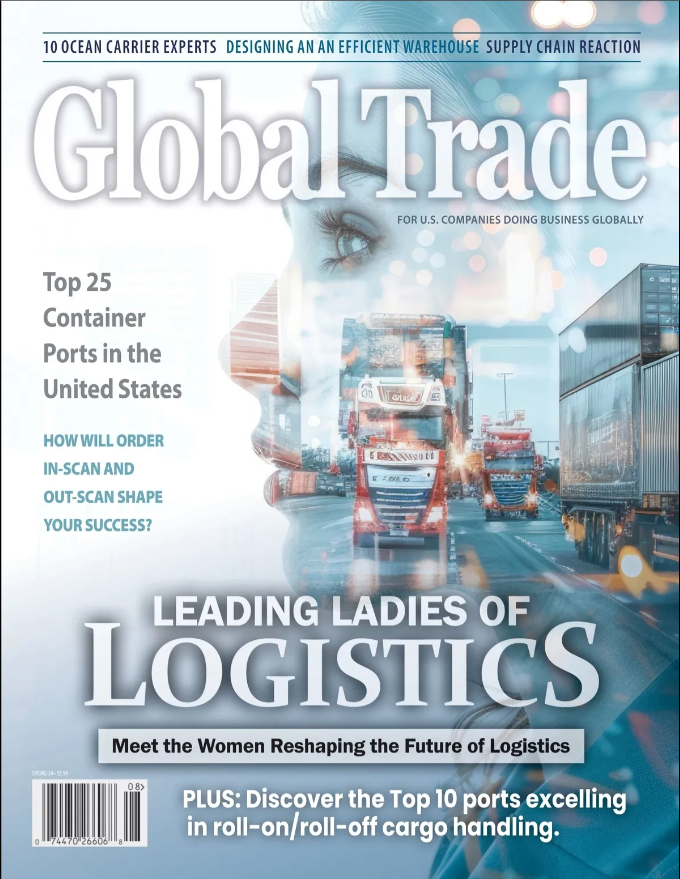Trade With Confidence
Andrew Borakove, owner of Gongs Unlimited in Lincoln, Nebraska, sells his musical products all over the world, to everyone from meditation teachers to military personnel stationed in the Middle East. “The military has a history of loving gongs from the Vietnam era,” he says.
Borakove markets the gongs through both his own e-commerce store and venues such as eBay, generating more than $1 million in sales annually. To receive payments from his customers, he often relies on PayPal, which acts as his credit card processor. “PayPal has made international transactions very easy on a small level with individual customers,” he says.
He’s fortunate in finding an international payment solution that has worked well so far. Many exporters discover it isn’t always easy to uncover options that serve the double goals of protecting them from risk and making payments convenient for customers. For exporters who don’t ask for a portion of what they are owed in advance, “receiving a straight wire transfer does create a certain amount of payment risk,” says Susanne Keough, head of SunTrust Bank’s Global Trade Solutions division.
Fortunately, say experts, it’s very possible to reduce the risk of not collecting what you’re owed by choosing the right international payment options. Here are some strategies to use.
ASSESS YOUR RISK
Before you determine what payment option you need, consider how much risk you’re taking on by doing business with a particular overseas client. “The way to assess risk is to assess who the buyer is and what their past behavior is—are they known for paying in a timely fashion?” says Lara Hodgson, president and CEO of NOWaccount, a firm in Atlanta that enables small businesses to get paid on invoices right away and then collects from their clients, including international ones. “Are they in a risky situation? There could be something that happens in their industry.” Paying for credit reports is often the best way to gather this information, if you can afford them, according to industry professionals.
It’s also important to understand the customs in a client’s country that revolve around paying, so you can plan accordingly. “It is important to understand how quickly they will pay—and if they don’t pay, what is the right way to follow up,” says David J. Whelan, managing director of consultancy Bespoke Business Strategy in New York and Los Angeles.
LAY THE GROUNDWORK
Currency fluctuations can be another major risk when working with overseas clients, so be sure to negotiate what currency they will use to pay you and put that information into your written agreement. Most experts recommend asking for payment in U.S. dollars. “If you leave that open—or even worse if they are paying in their currency and things shift—you could end up getting significantly less money in your bank account than you expected,” Whelan advises.
KEEP IT SIMPLE—WHEN YOU CAN
For small retailers and wholesalers who are accepting relatively small payments from international customers, basic payment solutions often work best. Like Borakove, Phyllis Chan, co-founder of Big Apple Buddy, an online store based in New York City that sells U.S. goods such as the Apple watch to international clients, has found that accepting PayPal works well overall. With her business about a year old, she finds that accepting PayPal helps establish credibility with customers. “PayPal is recognized around the world,” she says.
That said, her PayPal experience hasn’t been without bumps. “The main issue we encountered was PayPal put a hold on the account,” she says. “We were doing too much volume on the account.” The hold lasted six months, according to Chan. “That was a pain,” she says.
At Oransi, an eight-employee maker of air purifiers based in Austin, Texas, founder and CEO Peter Mann has taken a different approach. Mann began selling his products, which retail for $299 to $1,500, in China in 2014. He has found it easiest to accept the payment solutions offered through sales platforms he participates in—Alibaba.com, JD.com and an online store set up by Industrial and Commercial Bank of China. Consumers in China, who often don’t have credit cards, are accustomed to using these payment systems, he has found. “That’s where people are comfortable,” he says.
Another option worth considering, if you do business in China, is accepting payments through UnionPay, which issues bank cards in China. “People who are selling small-lot consumer products have done very well using the UnionPay payment system,” says attorney Steve Dickinson, a partner and founder at Harris Moure in Seattle, who advises clients on doing business in China. “That’s worked fine.”
KNOW WHEN TO INVOLVE YOUR BANK
When you’re involved in larger transactions, experts generally recommend relying on wire transfers. They are generally secure, but they aren’t failsafe. “Wire transfers from Asia are pretty good—if they’re made,” says Dickinson. “The problem we’ll have in China is the wire transfer never gets made.”
It’s not necessarily because clients are unscrupulous. Due to tight currency controls, banks in China review documents for wire transfers very carefully, which can take time, says Dickinson. When his clients are shipping something very valuable to China—say, a large shipment of wheat—he advises, “Wait until it shows up in your account before you do anything.”
Holding off will, of course, require some diplomacy. “The Chinese will expect that shipment to be on the ocean, heading to China, before the payment is made,” says Dickinson. “That’s where international payment gets difficult.” In some cases, business owners ask for payments in stages, starting with an initial kickoff payment, say experts.
Mann, who sometimes sells large numbers of his air purifiers to distributors, often opts for an added layer of protection by getting an irrevocable letter of credit from his bank and then seeking payment by wire transfer. An irrevocable letter of credit is a document that guarantees the buyer’s obligations to him; it can’t be revoked unless both parties agree. It runs him about $50. He considers it well worth the money. “The bank is the middleman who protects both parties,” he says. With such safeguards in place, it’s a lot easier to dive into international trade with confidence.





Leave a Reply